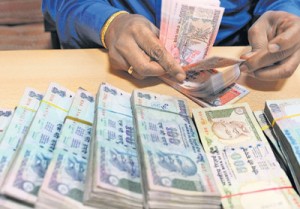In this blog post, Sreeraj K.V, a student of Government Law College, Ernakulam, Kerala writes about the economic theory of crime. This post includes a definition of the term economic crime, causes of economic crimes and its reasons as well as present Indian scenario regarding the rate of economic crimes.
Introduction
There is no specific definition given by any Criminologists regarding the term ‘economic crime’. The most commonly accepted definition regarding the term is that economic crimes are done by the offenders mainly upon a motivation for economic gain. An economic crime is conceived of as an offense upon which individuals or group of individuals purposefully act in an illegal manner to gain financial returns. The main feature of these types of crimes is that the offenders in many cases won’t be able to distinguish between the reasons that persuaded them to do the crime and the realizations and justifications that follow them.[1]
Crime Causation
The reasons for the commission of an offense differ and a discipline like economics predicated on rational behavior may be disadvantageous in explaining a phenomenon largely viewed as irrational. Recent survey states that there are three central issues for the economics of crime:
- The effects of incentives on criminal behavior.
- How decisions interact in a market setting.
- Use of cost benefits analysis for implementing alternative policies to reduce crime.[2]

Many social scientists argue that crime is closely related to work, education, and poverty. Unemployment and crime are by-products or even measures of social exclusion. Many of the criminals often have limited education or possess limited labor market skills. Another major aspect regarding the commission of crimes is that many of the offenders consider crime as a paid employment where they can generate income. Some of the persons commit crime purely for meeting their needs. Thus, the economic theory of crime has focused on sanction effects and the relationship between work and crime. Apart from this, there are certain other factors which lead a person to commit a crime:
- Expected gains from crime when compared with legal works
- Chance of being caught and convicted
- Extend of punishment
- Opportunities in legal activities.[3]
Society plays a crucial role in deciding the character of a particular person. The character of the community will be readily reflected in a person’s character. Thus, the person who lives in a good and healthy society may have good character when compared to a person living in a slum or any such area. This statement was well established in Bonger’s theory of economic criminality. In this theory, William Adriaan Bonger stated that there is a causal link between crime and the prevailing economic and social conditions. He asserted that crime is social in origin and a normal response to prevailing cultural conditions. He contended that in a more or primitive society, survival requires more selfless altruism in the community.
When capitalism emerges, there were social forces of competition and wealth, resulting in an unequal distribution of resources which also lead to individualism. Once self-interest and more egoistic impulses assert in a person, crime emerges. People with a low economic background would commit a crime out of need or out of a sense of injustice. Those who exercise power control and impose punishment, equating the definition of the crime, with harm or threat of harm to property and business interests of the powerful. Bonger also believed that crime in streets was a result of various conditions in which workers lived in competition with one another. He believed that poverty alone could not be a cause of crime but rather coupled with individualism, materialism, false needs, racism and the false thoughts regarding violence and
Once self-interest and more egoistic impulses assert in a person, crime emerges. People with a low economic background would commit a crime out of need or out of a sense of injustice. Those who exercise power control and impose punishment, equating the definition of the crime, with harm or threat of harm to property and business interests of the powerful. Bonger also believed that crime in streets was a result of various conditions in which workers lived in competition with one another. He believed that poverty alone could not be a cause of crime but rather coupled with individualism, materialism, false needs, racism and the false thoughts regarding violence and dominations among the people.[4]
According to Bonger, the following were to be the major reasons for the commission of an offense
- Financial necessities

- Poverty
- Lack of education
- Egoistic factors
- Inequality among the rich and the poor in the same community
- Lack of social security, etc.
An instance can be traced out from this theory, A, servant of B was working in B’s house for around two years. B refused to increase the salary or provided any financial or non-financial help to him. Due to lack of money and emerging financial needs, A kidnapped B’s son and demanded a sum of five lakh rupees. This instance can be treated as a crime committed purely by financial needs which was stated by Bonger in his “Economic Theory of Criminality.”
In India, crimes committed purely for financial needs are increasing at a faster rate than any other countries. Unequal distribution of wealth among the rich and the poor is one of the main reasons behind this phenomenon. Another reason is the increased rate of the population mainly in urban areas as well as people living in slum areas. Such situation results in the increased rate of crime as there emerges unwanted competition among the people living in those areas.
Conclusion
During the time when Bonger introduced the economic theory criminality, the theory was criticized by famous criminologists as well as economists of the time. The reason was that till then, crime and criminality were considered as something which involved personal interest as well as the physical and mental traits of the person who commits the crime. But things turned around when people started committing crimes for financial gains and to overcome financial needs. There gained the importance of Bonger’s theory as he was the one who stated that money plays a key role in the commission of certain crimes. In the present social scenario, economic offenses are gaining much importance as there is only one single notion for people, money. The need of money and other financial necessities of man leads him in committing certain crimes and not the person, but his personal, as well as social conditions, makes him a criminal. The situation can be prevented only by enhancing a stable development model in the society as well as providing certain financial benefits for neglected people mainly the backward financial individuals in the community.
[divider]
Footnotes:
[1] Retrieved on: http://www.encyclopedia.com/doc/1G2-3403000102.html
[2] Retrieved on: https://www.surrey.ac.uk/economics/files/apaperspdf/ECON%2003-00.pdf
[3] Retrieved on: https://www.surrey.ac.uk/economics/files/apaperspdf/ECON%2003-00.pdf
[4]Retrieved on: http://www.integratedsociopsychology.net/Crime-Sociological_Factors/1stMarxisttheoryofcrime- WillemAdriaanBon.html
 Serato DJ Crack 2025Serato DJ PRO Crack
Serato DJ Crack 2025Serato DJ PRO Crack










 Allow notifications
Allow notifications


